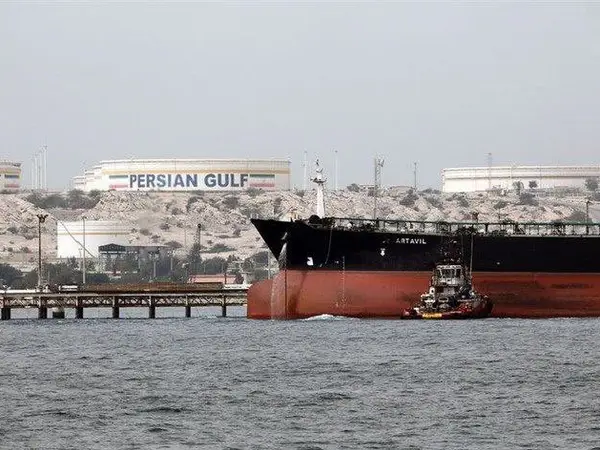Russia is taking market share from Iran’s bitumen (asphalt) exports, Tehran media reported Saturday, as a trade competition has flared between the two allies.
The general secretary of oil by-products exporters union, Hamid Hosseini was quoted by Fararu website as saying that Iran has lost about a quarter of its bitumen exports, mainly to India, because of steep discounts by Russia. In the last three months Iran’s monthly exports of the oil by-product dropped from 430,000 tons to 330,000, Hosseini said.
Reports about Russia taking market share from Iran in oil and steel exports emerged in June. Kpler, an industry intelligence firm reported that Iran’s oil sales to China “had halved” in May, as Russia offered larger discounts. Other sources later confirmed the fierce competition for market share, although it is not clear how much sales Iran has lost.
In May, Reza Shahrestani, a member of Iran’s steel producers’ association told local media that exports had stopped from mid-March to early May to China, Afghanistan, Thailand and South Korea, Tehran’s biggest customers, who shifted to buying discounted Russian steel.
The two countries are strategic allies, with Tehran subtly supporting Russia in its Ukraine invasion by blaming NATO expansion for the conflict, but also calling for an end to hostilities.
They are also allies in the Syrian civil war, where Russia intervened in 2015 to save Bashar al Assad’s rule against Sunni rebels. Its air power proved decisive as thousands of Iranian forces were bogged down in fighting. Assad reclaimed most of the territory taken by rebels, but Iran also found a foothold in the country with designs against neighboring Israel.
The loss of market share in bitumen or asphalt exports could cost Iran up to $50,000 million a month, given higher oil prices. At the same time Russia’s ambassador in Tehran Levan Dzhagaryan (Jagarian) on Saturday criticized Iran for owing Moscow hundreds of million of dollars and not making payments.
All types of exports are vital for Iran amid US oil and banking sanctions. The government faces a more than a 50-percent budget deficit, with annual inflation at 55 percent and popular discontent rising.
In recent days, US National Security Adviser Jake Sullivan has accused Russia and Iran of preparing a military drone deal, with Moscow sending a delegation to Iran to review options to buy drones to use in Ukraine. Iran has tried to dispel concerns by saying that it would not side with warring sides, but there is some evidence of Russian interest in acquiring Iranian drones.
Russian President Vladimir Putin is scheduled to visit Tehran on Tuesday, July 19 and will meet Iran’s Supreme Leader Ali Khamenei. The visit follows US President Joe Biden’s tour of the Middle East, and is seen by some as Putin’s answer to American efforts at unifying its regional allies.
Iran’s anti-West and pro-Russia posture increasingly raises questions even among some Islamic Republic politicians. Also, the business community, which can be considered loyal to the regime have begun expressing concern over Russia competition.
The Wall Street Journal wrote on July 16, “Within Iran, the fight has highlighted divisions over the country’s alignment with Russia, which the Tehran government has backed through the Ukraine invasion while the Iranian business community privately simmers over what it sees as unfair competition.”
